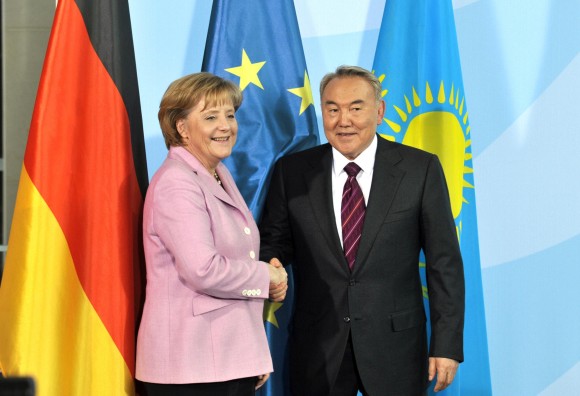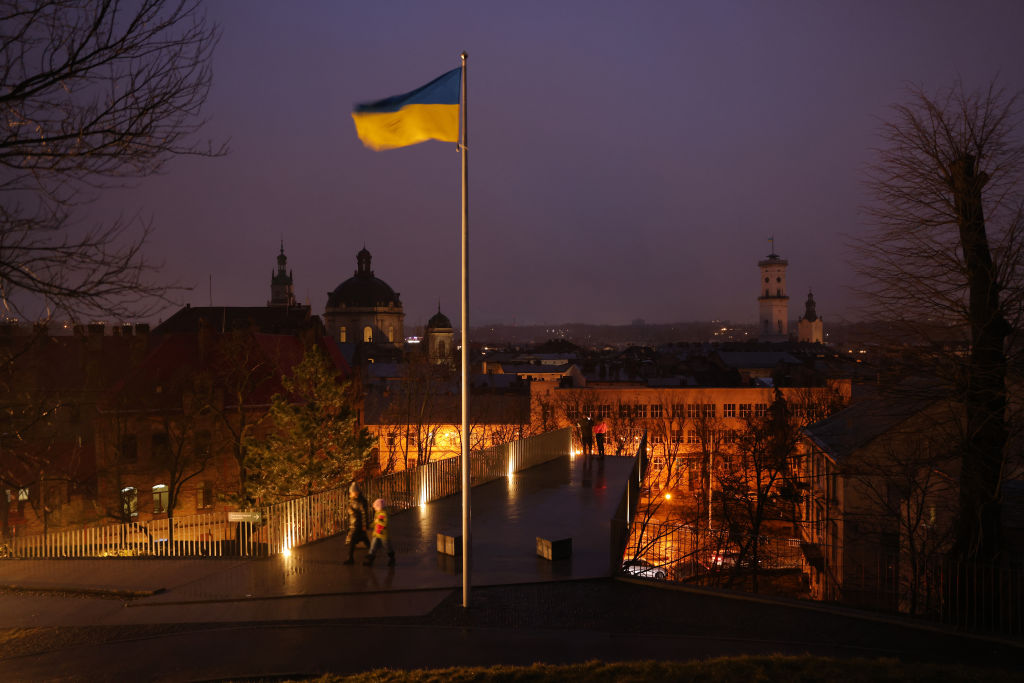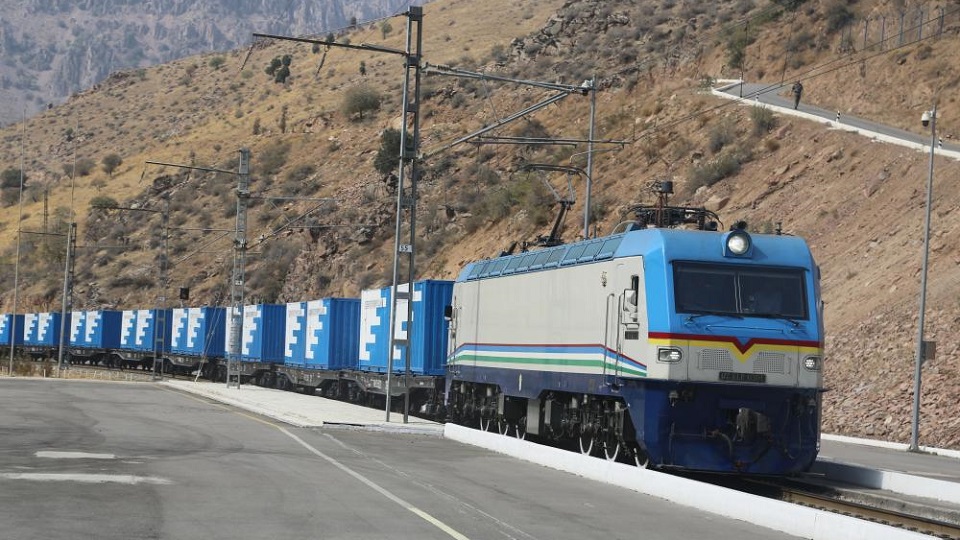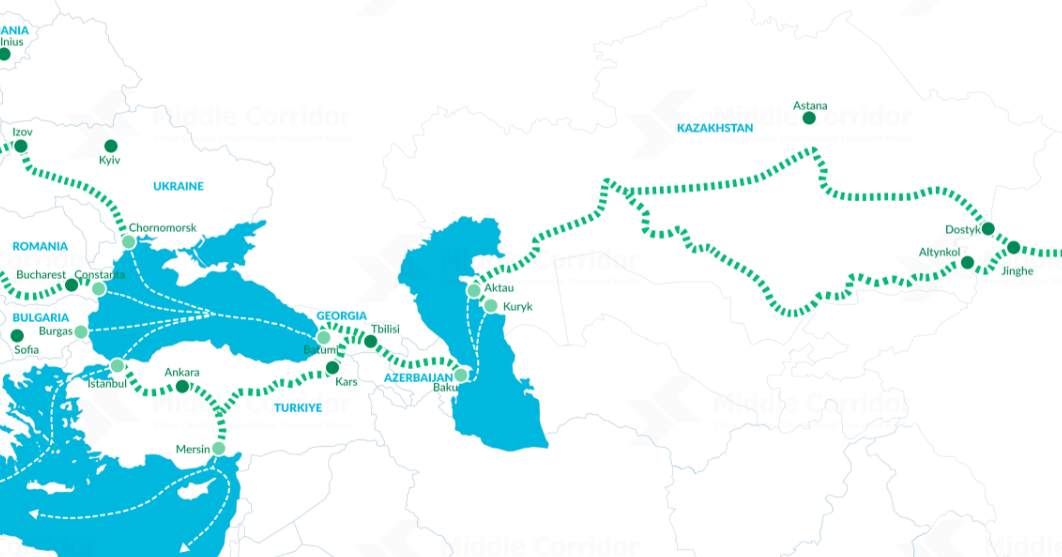
Germany, Kazakhstan Sign Strategic Agreement on Rare-Earth Metals
Germany, Kazakhstan Sign Strategic Agreement on Rare-Earth Metals
On February 7 in Berlin, the German and Kazakhstani governments signed an agreement on “partnership in the raw materials, industrial and technological spheres.” Chancellor Angela Merkel and Kazakhstan’s visiting president, Nursultan Nazarbayev, witnessed the signing. The agreement focuses on rare-earth metals. These represent a world-class resource of Kazakhstan, as yet barely tapped in that country.
Europe, meanwhile, is vulnerable to shortages and excessive pricing due to its full dependence on imported rare earths. Seventeen metallic minerals, classified as rare earths, are critical to manufacturing a growing range of products from household appliances, electrical filaments, and semiconductors to television and computer screens, cellular telephones, all types of smartphones, solar panels, wind turbines, electrical car engines for hybrid cars, and some key military items. At present, Europe imports an estimated 90 percent of its rare-earths supplies from China, and an estimated 1 percent from Central Asia (mostly Kazakhstan). From time to time, China abuses its quasi-monopoly by resorting to stoppages of its production or deliveries to Europe, resulting in shortages and price hikes. Europe’s supplies of rare earths are undiversified and insecure. A European solution within the EU is not yet in sight.
Germany has now found its own solution to the rare-earth problem through cooperation with Kazakhstan. Signed by Germany’s Economy Minister, Philipp Roesler, with Kazakhstan’s Industry and New Technologies Minister, Aset Isekeshev, the inter-governmental agreement is a framework document, to be followed up by German companies with project agreements in Kazakhstan. Underlying the agreement is a concept of “priority access” for German companies, linked to technology transfers. The agreement just signed covers all phases from prospection to the acquisition of mining rights, investment, construction of processing plants, use of the end product, and export rights.
The agreement links such projects with Kazakhstan’s ongoing state program for accelerated industrial-innovative development. In line with that plan, the Berlin agreement stipulates technology transfers as part of such German projects in Kazakhstan. The German partners would raise private-sector investment capital from banks and investment funds. The German government shall make available credit guarantees as appropriate.
Under the agreement, the German side shall observe high environmental and social standards on projects for raw-materials mining and processing in Kazakhstan. Apart from exporting the end product to Germany and Europe, allowance is also made for exporting to markets of the [Russia-led] Customs Union and Single Economic Space (German Economy Ministry, Pressemitteilung, February 8; Interfax, Feb 9).
On the German side, this agreement is a product of the public-private partnership between government and industry. Industry took the initiative but the government worked in tandem. In January of this year, 12 of Germany’s largest industrial concerns formed an “Alliance for Raw Material Supply Security” (open to further entrants). Mainly focused on procurement of rare earths, this Alliance operates under the umbrella of the Confederation of German Industries and in line with the government’s 2011 Raw Materials Strategy. The industrial concerns plan to implement their projects in consultation with governmental agencies (German Raw Materials Agency and the Geological and Raw Materials Institution) (Financial Times Deutschland, January 30).
Average lead-time from the signing of project agreements to the start of commercial production is estimated at six to seven years in the rare-earths sector. Germany is also seeking access to these minerals in Mongolia, where Chancellor Merkel visited in October 2011. In Berlin at the February 7 signing event, Merkel and President Nazarbayev remarked that Germany is the leading partner for Kazakhstan in Western Europe. On February 8, the Kazakh president inaugurated the Eurasia Club in Berlin.
Kazakhstan has risen to third place among Germany’s crude oil suppliers. Germany imported 8 million tons of Kazakhstani oil in 2010, amounting to 9 percent of total German imports (2011 data are not yet published) (German Economy Ministry press release, February 8). All Kazakhstani oil reaches Germany via Russia. The German-Kazakhstani bilateral trade turnover is estimated to have reached € 6.3 million in 2011, for the first time exceeding the 2008 pre-crisis level of € 6.1 billion. The trade balance heavily favors Kazakhstan. In 2010, Kazakhstan exported € 3.8 billion worth of goods to Germany (mostly crude oil and steel products) while Germany exported € 1.4 billion worth of goods to Kazakhstan (mostly high-value industrial products) (balance data for 2011 are not yet published) (Die Welt, February 9; Kazinform, February 10).
German direct investment in Kazakhstan amounted to € 825 million in 2011 (Kazinform, February 10) – not only below Germany’s potential but also not corresponding with the German economy’s requirements, first and foremost for rare-earth metals. Germany and Kazakhstan have now decided to partner in that sector also. The agreement on rare-earth metals represents a breakthrough for supplying Europe’s industrial heartland with critical resources from Central Asia. Reciprocally, the agreement with Germany lends impetus to Kazakhstan’s ongoing state program for industrial development and innovation.


